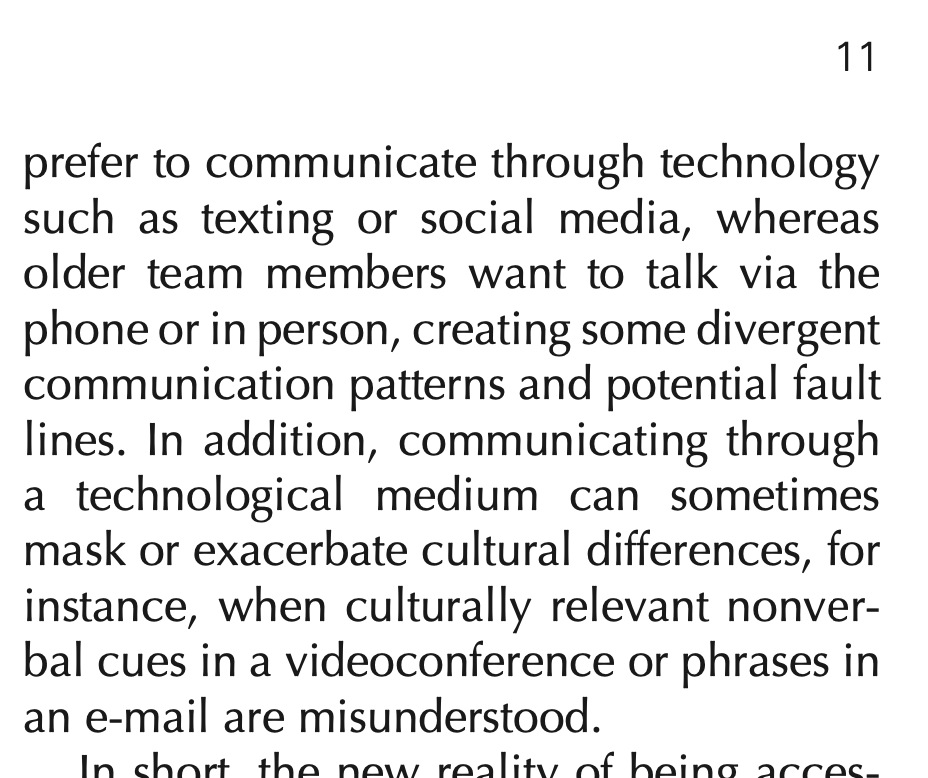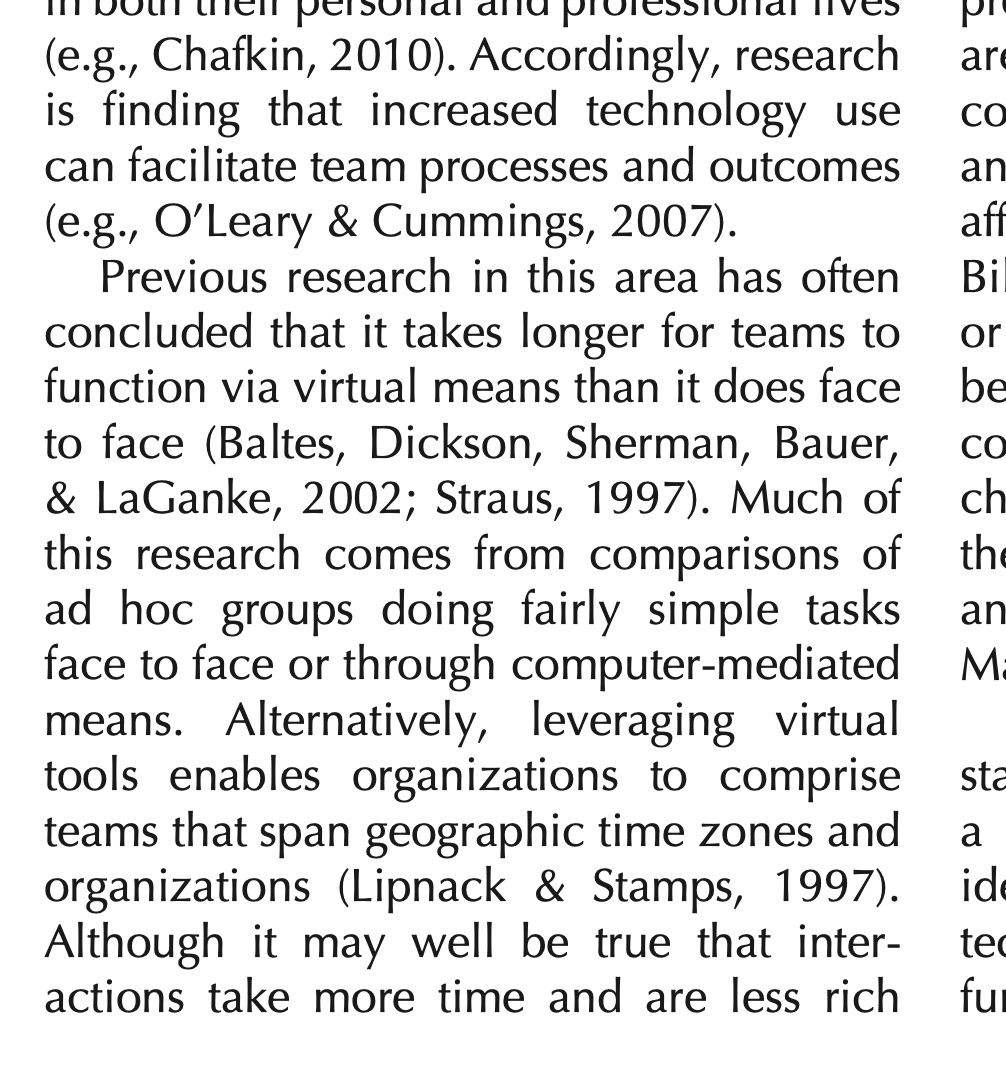Michael Shulman's Shared Notes
Powered by 🌱Roam GardenFebruary 28th, 2021
This is an "Orphan" page. Its core content has not been shared: what you see below is a loose collection of pages and page snippets that mention this page, as well as snippets of this page that were quoted elsewhere.
- While historically, exploration of the inputs that influence outputs has predated discussions of the processes by which this has happened, in the intersection of team processes and technology there is a unique opportunity, where the team processes have been the focus of extensive study whereas the technologies that are the inputs are still in their relative infancy, and there is indeed the opportunity to shape the direction of their development to be in line with the processes by which human teams work.
- Teamwork processes as the interaction surround the execution of the tasks - and as such, teamwork processes are where the team interaction happens. So focus in this review is on teamwork rather than taskwork.
- (Debating this point - because for creative teams, or for lots of knowledge work, there is a lot of interaction that is the work itself that matters.)
- Relatedly - when humans interact with physical machines, the main difference between physical machine and robot is in execution of tasks. So not differentiating here between physical robots and computers.
- (Debating this point - because for creative teams, or for lots of knowledge work, there is a lot of interaction that is the work itself that matters.)
- Relatedly - when humans interact with physical machines, the main difference between physical machine and robot is in execution of tasks. So not differentiating here between physical robots and computers.
- [@Marks.Mathieu.ea2001a], stood test of time, on seeing teams as going through patterns of transition and action stages, and delineating processes within each stage
- Torres et al. (under review), breaking action stage into sub-phases of acting, monitoring, recalibrating; accordingly, have added recalibration stage
- Emergent states [@Marks.Mathieu.ea2001a], focus on specific cognitive and affective states that play large roles in literature, as reviewed by @Grossman.Friedman.ea2017TeamworkProcessesEmergent]
- As technology interacts with team processes, it may help existing processes or hinder them.
- Introduce Seely's (2015?) process facillitation, etc.
- Introduce Seely's (2015?) process facillitation, etc.
- External to any discussion of specific processes is the area of communication richness for how it enables communication broadly, unspecific to any particular process.
- While the generic application of this enrichment is itself reason for understanding more deeply how the other elements of technology interplay with team processes, it also bears examination for how it enables and hinders communication.
- While the generic application of this enrichment is itself reason for understanding more deeply how the other elements of technology interplay with team processes, it also bears examination for how it enables and hinders communication.
- Transition processes, the planning stage of a team
- Action processes, work itself
- Cognitive emergent states, cognitive being of a team, which changes with time, but has an ongoing influence on the way the team acts; many aspects of technology are most felt here
- Affective emergent states, how the team feels, changes with time and has ongoing influence on the way teams act; established in long social traditions in humans, but such patterns have always changed with the introduction of new technologies - even when new mining patterns introduced to previously jack-of-all-trades miners [@Trist.Bamforth1951].
- Focus of a lot of literature lately, especially the trust aspects, for AI in particular
- Also some risk of unfamiliarity or discomfort with IA technologies [@Seely2015]
- Focus of a lot of literature lately, especially the trust aspects, for AI in particular
- Also some risk of unfamiliarity or discomfort with IA technologies [@Seely2015]
- (Tannenbaum, Mathieu, Salas et al., 2012) @Tannenbaum.Mathieu.ea2012, talk about tech in teams a little.

- Some previous work has found that virtual teams take longer - but they often are doing simple tasks in face-to-face vs. virtual teams
 (p. 12)
(p. 12)
Adaptive structuration theory argues that to the extent members view advanced technologies as helping facilitate coordination efforts they will more readily adopt them (DeSanctis, Poole, & Dickson, 2000) (see p. 12)
"Another issue that affects human–robot teams is that of team processes and emergent states critical to successful teamwork. Although well researched in human–human teams, the examination of these processes and emergent states in human – robot teams is an emerging area of study and is limited in focus" (p. 13) motivation_section Tech in MTSs review